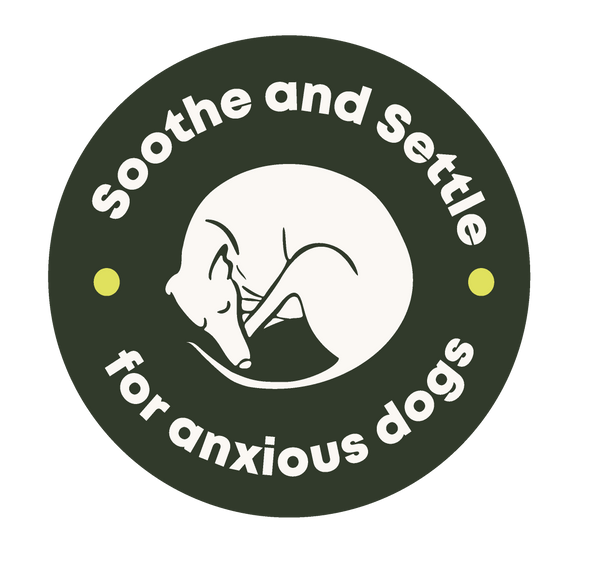
Understanding Sleep Cycle in Dogs
Share
Much like humans, dogs experience various stages of sleep, with each serving an essential function for their physical and mental health.
Understanding your dog's sleep cycle can provide valuable insights into their health, and the importance of ensuring your dog gets the rest that they need.
What Is the Sleep Cycle of a Dog?
Like humans, dogs go through different stages of sleep.
The sleep cycle of a dog consists of two main phases: REM (Rapid Eye Movement) sleep and non-REM sleep.
The big difference between dogs and humans is that dogs have short sleep cycles that last just 45 minutes at a time. During that time, they will cycle through REM and non-REM sleep twice.

What Happens During REM Sleep for Dogs?
During REM sleep, dogs experience rapid eye movement, increased brain activity, and vivid dreams. This stage is similar to the REM sleep stage in humans. You may notice your dog twitching, wagging its tail, or making small noises while in REM sleep.
What Happens During Non-REM Sleep for Dogs?
Non-REM sleep is a deeper and more restful stage of sleep. Dogs spend a significant amount of time in this stage, especially during the early part of their sleep cycle. During non-REM sleep, their heart rate and breathing slow down, and their muscles relax.
How Long Do Dogs Sleep For?
On average, adult dogs sleep for about 12 to 14 hours a day, while puppies and senior dogs may sleep even longer to support their growth and cope with age-related changes. However, how often a dog sleeps for depends on their age, breed, activity level and environment.
- Breed: Certain dog breeds have lower energy levels than others, which means they require more sleep.
- Age: Puppies and senior or adult dogs tend to sleep more, with puppies sleeping the most.
- Activity Level: Dogs who are active will experience deeper sleep.
- Health: If your dog seems uncharacteristically tired or has any other unusual symptoms, this could be the result of a health condition.
- Diet: A dog that isn’t fed a balanced diet may require more sleep, because they aren't being fed the key nutrients they need to fill their energy stores.
Why Do Dogs Sleep So Much?
Sleep is essential for dogs as it helps them rest, recharge, and maintain their overall health. Dogs have different sleep needs compared to humans, and their sleep patterns are influenced by their natural instincts and energy levels, as well as their life stage, health status and diet.
How Can You Ensure Your Dog Gets Quality Sleep?
Adequate and quality sleep is crucial for dogs' physical health and cognitive function. Part of this comes down to creating a comfortable sleeping environment that will help your dog to sleep well. To help ensure your dog sleeps well, you can:
- Provide a cosy bed or crate that is suitable for their size and breed, and ensure this is away from noise and other distractions.
- Ensure your dog gets enough exercise during the day to promote better sleep at night. Physical exercise is always a good idea, but mental exercise can help too.
- Establish a consistent bedtime routine to help regulate your dog's internal clock and sleep-wake cycle, promoting better sleep.
- Ensure your dog has a healthy, balanced diet, and try to avoid feeding your dog high-energy foods before bedtime.
- Plan regular toilet breaks, including one before bed, to prevent disruptions.
- Schedule regular veterinary check-ups to monitor your dog's health and address any underlying medical issues that may affect their sleep.
In addition, you might wish to consult with your veterinarian about the use of supplements or calming aids that may help promote relaxation and improve sleep.
One great example of this is The Hush Muff - a head covering that muffles loud noises (and other distractions) and encourages relaxation (through gently embracing your dog).
What Are the Signs of Sleep Disorders in Dogs?
If your dog is experiencing sleep disturbances, it may be a sign of an underlying health issue.
Look out for signs such as excessive daytime sleepiness, difficulty falling asleep or staying asleep, frequent waking during the night, or changes in sleep patterns. If you notice any concerning symptoms, consult your veterinarian.
Anxiety is one reason for a dog not sleeping at night, and there are many things that can make a dog anxious, such as fireworks, thunderstorms, travelling and changes in air pressure.
Addressing the root causes of your dog’s anxiety and helping them to overcome it could improve their sleep.
Conclusion
Understanding the nuances of your dog's sleep cycle means you can better cater to their needs.
Through creating a comfortable sleep environment, promoting healthy sleep habits, and staying vigilant for signs of sleep disturbances, you can ensure your canine companion enjoys restful nights and energetic days for years to come.
Looking for natural herbal medicine for your pets needs? We now stock top rated Dorwest products, including Green Releaf tablets to support the urinary system, Tree Bark powder to support digestion and Valerian Compound to quickly calm and relax cats and dogs.
Check out our wide collection of other anxious pet products, as well as our clearance stock, here.
Date Uploaded: August 11th, 2023
Last Updated: March 25th, 2024





